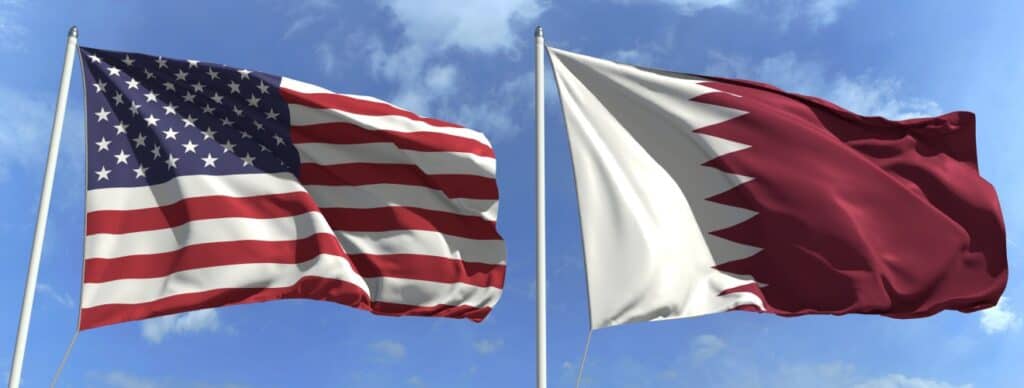
Biden Can core by partnering with Qatar
By Tarek Kteleh
Russia’s reprehensible invasion of Ukraine has made one thing clear: The global order is changing. An axis of repressive, authoritarian world powers — all with ties to Vladimir Putin — is growing bolder and more confident, and wants to see America’s influence decline.
It’s more important than ever for the United States and all liberty-minded Western nations to have dependable, moderate allies to counter Putin and his cronies. As policymakers look abroad to cultivate relationships, they shouldn’t overlook Qatar, a rising star on the world stage.
While some folks might have trouble locating Qatar on a map, millions of eyes are turning to the Arab nation. Qatar is hosting the 2022 FIFA World Cup, having beat out the United States, Australia, Japan, and South Korea for the bid.
Hosting the World Cup will put the modern capital city of Doha in the limelight and further Qatar’s use of “sports diplomacy” to enhance cooperation, respect and tolerance among all nations.
And there’s certainly good reason to pay attention to Qatar. Although smaller than Connecticut, it has the fourth-highest gross domestic product per capita in the world, and is the second-highest exporter of liquified natural gas. It is also home to thriving financial and tourism sectors, as well as the highly influential Al Jazeera media group.
Qatar has long cooperated with the United States and NATO in maintaining security in the Persian Gulf. When the West conducts air operations against Islamic State terrorists, Qatar has often provided space for staging zones.
After the United States withdrew from Afghanistan last year, Qatar helped to evacuate more than 40,000 civilians as the Taliban swiftly took over the country. The Biden administration recently designated it a major non-NATO ally.
Qatar played a pivotal role in supporting pro-democracy movements with financial and military resources during the Arab Spring. The country has backed youth, liberal, and conservative change movements working to implement democratic governance and advance liberty and justice.
Qatar has also proven itself able and willing to oppose Putin and his proxies. While Putin aided the reign of terror of Syrian dictator Bashar Assad during the Syrian civil war, it was Qatar that supported the rebels who opposed him.
Even more important than Qatar’s aid is its position as a top petroleum exporter. In a world where controlling the global supply of energy is of increasing strategic importance, Qatar may very well be able to deprive Putin of one of his greatest advantages over the West.
Washington may not agree with Doha on all issues, particularly its history of providing financial support to extremist groups. If such support still exists, Qatar should certainly rethink it. But that possibility should not stop the United States from courting Qatar as a friend and ally. The nation can play a vital role in countering Putin and his gang of illiberal authoritarians. That includes Syria’s murderous dictator, Assad, who has long oppressed the people of my homeland.
Now is the time to build lasting ties with moderate nations. It’s time for the United States and its Western allies to strengthen ties with Qatar.
Dr. Tarek Kteleh is a practicing medical doctor and president of Rheumatology of Central Indiana. He is the author of The Six Pillars of Advocacy: Embrace Your Cause and Transform Lives. This piece originally ran in Issues & Insights.




